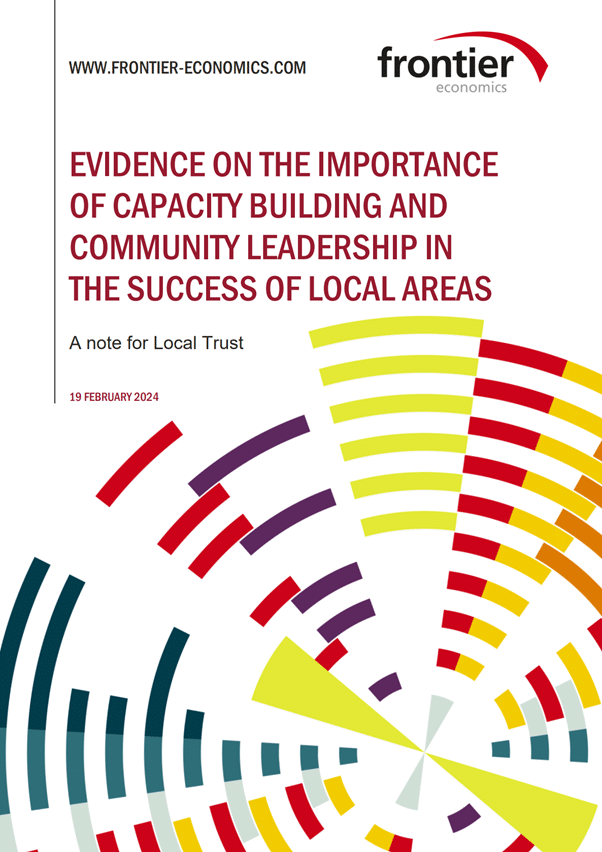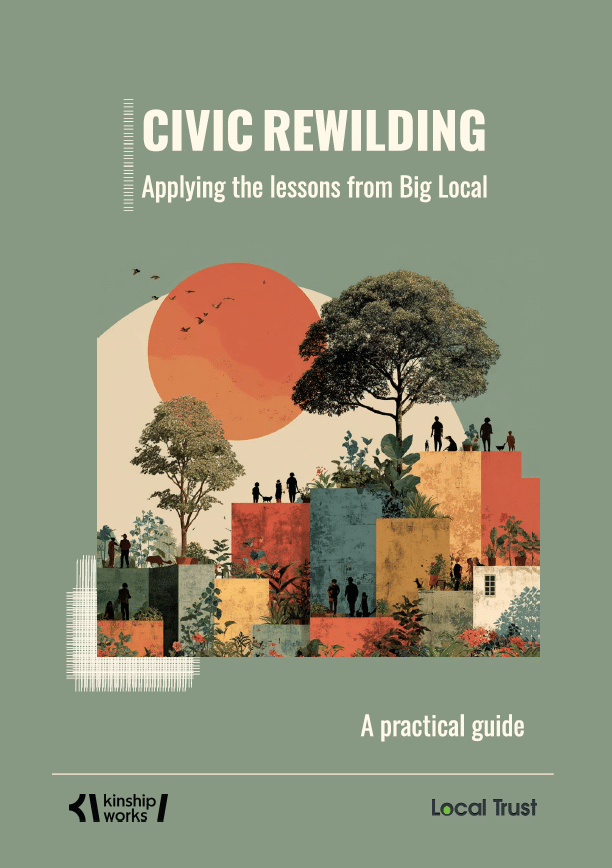Evidence on the importance of capacity building and community leadership in the success of local areas
A report for Local Trust from Frontier Economics

In this report, Frontier Economics sheds light on the importance of capacity building and local leadership when investing in ‘left behind’ neighbourhoods.
In March 2023, the government announced that Community Wealth Funds (CWFs) would become a named cause to benefit from the expanded Dormant Assets Scheme. These funds aim to empower local residents in ‘left behind’ neighbourhoods to invest in their local communities and rebuild their social institutions.
The government then launched a technical consultation stage which sought views on how to structure, design and operate a CWF. In particular, it was interested in the nature of local decision-making and whether there should be a minimum level of social infrastructure present for areas to be eligible for funding (which determines the degree of capacity building required by a CWF).
Through its experience with the Big Local programme, Local Trust, since it was set up in 2012, has gained a strong qualitative sense of the importance of two key aspects critical to creating the necessary foundations for the longer-term success of areas. These two aspects, relevant to the future design of a CWF, are:
- The importance of time and investment spent building the capacity of individuals within local areas.
- The importance of interventions being community-led (as opposed to being led by local authorities, the voluntary sector, a funder or central government).
In light of the consultation, Local Trust is keen to add to the evidence base in these two areas. Existing evidence specifically relating to the community context is relatively sparse, so we commissioned Frontier Economics to look beyond the community-specific literature in two main areas:
- The academic and wider evidence around the economic and social returns to programmes developing ‘non-cognitive’ skills (often called soft skills, these could include project management, communication or community engagement), which could act as parallels to the capacity-building work undertaken by Local Trust.
- The academic and wider evidence around the factors and situations in which delegated decision-making, across a range of contexts, is more successful and where parallels could be drawn with decision-making delegated to local communities.
This report for Local Trust, written by Frontier Economics, collates and summarises the adjacent academic literature on these two topics and outlines the implications of this for the future design of CWFs.



